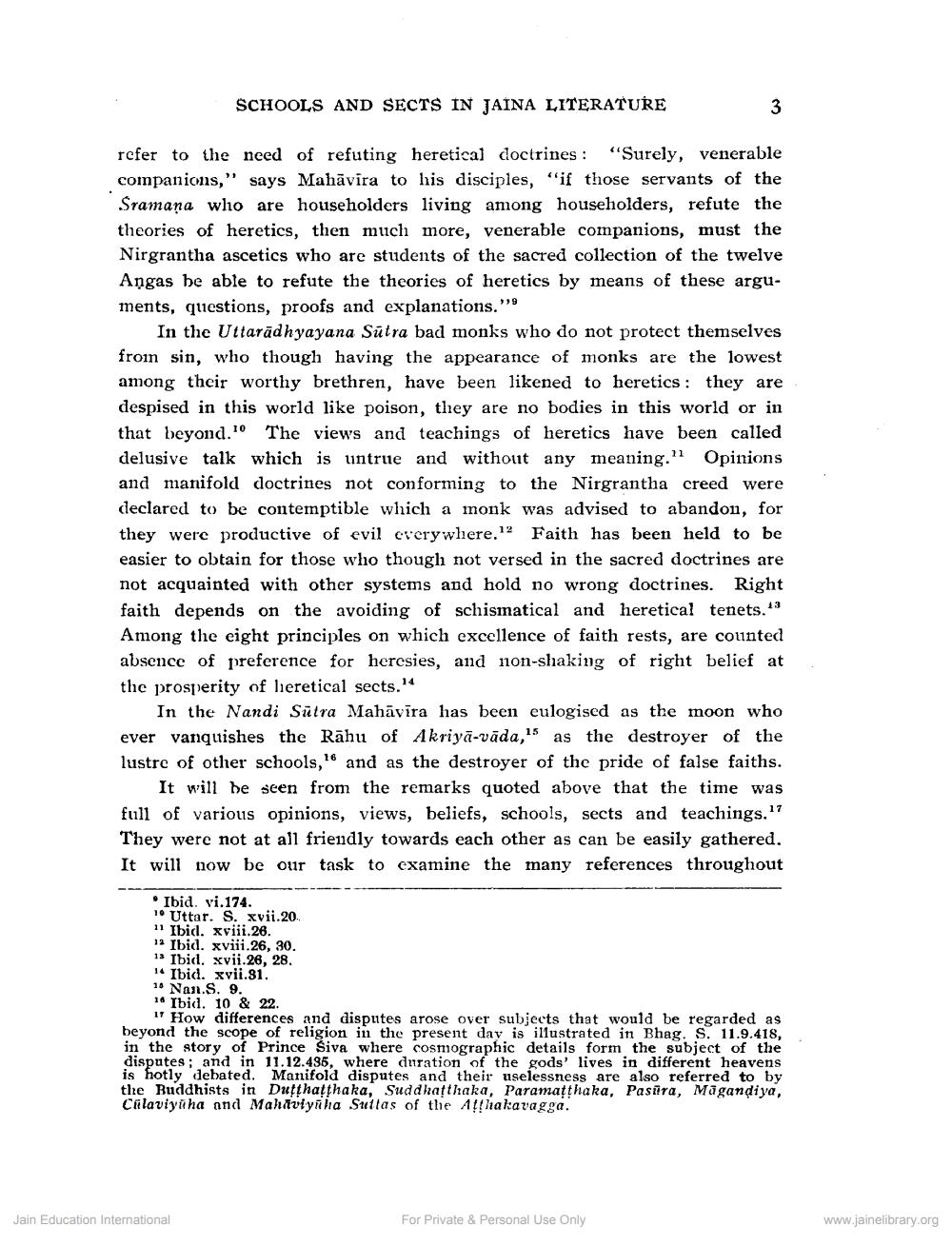________________
SCHOOLS AND SECTS IN JAINA LITERATURE
3
refer to the need of refuting heretical doctrines: "Surely, venerable companions," says Mahāvira to his disciples, "if those servants of the Sramana who are householders living among householders, refute the theories of heretics, then much more, venerable companions, must the Nirgrantha ascetics who are students of the sacred collection of the twelve Angas be able to refute the theories of heretics by means of these arguments, questions, proofs and explanations."'
In the Uttarādhyayana Sūtra bad monks who do not protect themselves froin sin, who though having the appearance of monks are the lowest among their worthy brethren, have been likened to heretics : they are despised in this world like poison, they are no bodies in this world or in that beyond." The views and teachings of heretics have been called delusive talk which is untrue and without any meaning. Opinions and manifold doctrines not conforming to the Nirgrantha creed were declared to be contemptible which a monk was advised to abandon, for they were productive of evil everywhere.12 Faith has been held to be easier to obtain for those who though not versed in the sacred doctrines are not acquainted with other systems and hold no wrong doctrines. Right faith depends on the avoiding of schismatical and heretical tenets. 13 Among the eight principles on which excellence of faith rests, are counted absence of preference for heresies, and non-shaking of right belief at the prosperity of lieretical sects."
In the Nandi Sūtra Mahāvīra has been eulogised as the moon who ever vanquishes the Rāhu of Akriyā-vāda," as the destroyer of the lustre of other schools, and as the destroyer of the pride of false faiths.
It will be seen from the remarks quoted above that the time was full of various opinions, views, beliefs, schools, sects and teachings."? They were not at all friendly towards each other as can be easily gathered. It will now be our task to examine the many references throughout
. Ibid. vi.174. 1. Uttar. S. xvii.20 11 Ibid. xviii. 26. 11 Ibid. xviii.26, 30. 13 Ibid. xvii.26, 28. 14 Ibid. xvii.31. 14 Nan.s. 9. 16 Ibid. 10 & 22.
1 How differences and disputes arose over subjects that would be regarded as beyond the scope of religion in the present day is illustrated in Bhag. S. 11.9.418, in the story of Prince Siva where cosmographic details form the subject of the disputes and in 11.12.496. Where duration of the gods' lives in different hea is hotly debated. Manifold disputes and their uselessness are also referred to by the Buddhists in Dutthatthaka, Suddhatthaka, Paramatthaka, Pasira, Māgandiya, Calaviyñ ha and Mahaviyiha Suitas of the Alphakavagga.
Jain Education International
For Private & Personal Use Only
www.jainelibrary.org




